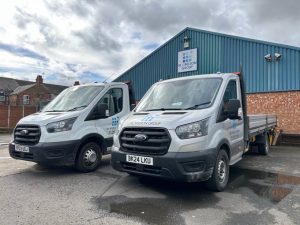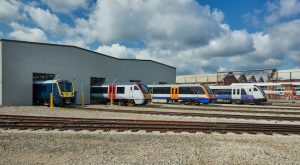Access to skills vital to drive the Midlands’ automotive sector

By Matt Buckingham, Automotive Lead at KPMG in the Midlands
The Midlands automotive sector, despite strong headwinds, has still found a way to succeed and remains incredibly resilient.
There is no doubt that Brexit is a major concern for the big car manufacturers, and we have seen that large-scale investment from OEMs is on hold until there is at least some clarity around what happens after March 2019. This is, of course impacting the regional supply chain, and we’re no clearer around what Brexit will bring than we were six months ago.
What we do know is that Brexit will bring challenges around access to a skilled labour force. I have heard anecdotal evidence from a Tier 1 automotive manufacturer that as much as 5% of their workforce didn’t return from their summer holidays as they either no longer feel welcome in the UK, or they don’t now see the economic benefit in remaining in the UK.

Sales strong – despite headwinds and a warning for September
Despite these challenges, the last few months of car sales have been strong in the UK, with the data holding up incredibly well even if the so-called ‘Dieselgate’ scandal is making consumers pause and think about what their next purchase will be. August saw very high new car sales, brought on by a new test, called the Worldwide Harmonised Light Vehicle Test Procedure (WLTP), which replaces the New European Driving Cycle (NEDC) test procedure for establishing the official Fuel Consumption and CO2 emissions of new cars from September.
My expectation is that September new car sales – a critical month for registrations, will be disappointing as consumers brought forward their new car purchases to August to take advantage of incentives being offered on vehicles which would not pass the September WLTP tests. I also anticipate that car sales in the final quarter of 2018 will fall short too as Brexit jitters and WLTP challenges continue. Overall I predict that 2.4m cars will be registered in the UK in 2018.
Together in electric dreams
We have heard much about electric and autonomous vehicles and it’s pleasing to see the levels of research and development going into these areas, through OEM’s, universities and on science parks throughout the Midlands. This investment has allowed our region to be recognised as a centre of excellence for both autonomous vehicles (AV) and electric vehicles (EV). However, it is important that the Government steps up its level of investment- particularly around infrastructure, in order to ensure that we really can maximise this opportunity post-Brexit.
Further good news comes in the shape of the UK’s largest independent vehicle battery manufacturer, which is set to open in Coventry next year, creating around 90 jobs at a multi-million pound, high-tech facility that will produce batteries for hybrid and electric vehicles.
The factory will be operated by joint venture, unveiled earlier this week, named Hyperbat, between the parent company of the Williams Formula One motor racing team and Unipart.
The new company and factory combine world-leading expertise in manufacturing, logistics and safe, innovative, high performance vehicle battery technology from Unipart and Williams.
The facility could provide a secure future supply chain for UK-based car-makers as their vehicles transition to electric power, with the potential to provide similar solutions to developing marine and aircraft projects in future.
The Midlands, then, has a unique opportunity to be at the forefront of AV and battery technology which it is actively embracing, but this can only continue if the region has access to the skills to let this happen in a post-Brexit world.







